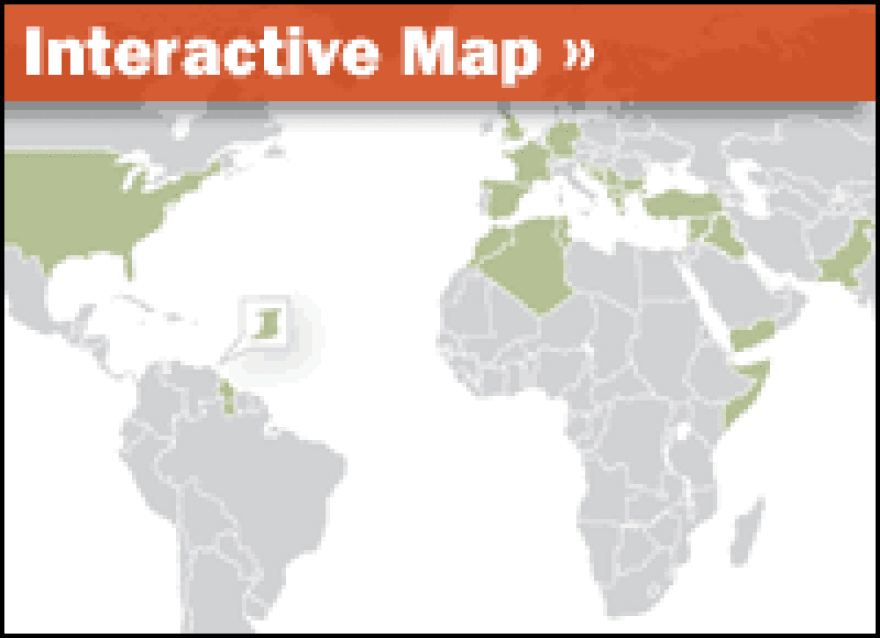
Al-Qaida terrorists in Iraq will likely mount an attack in the U.S. within the next three years, according to a new National Intelligence Estimate that details domestic threats.
A declassified version of the findings was released Tuesday. It specifies a number of groups that pose a "persistent and evolving threat" to the U.S. over the next three years.
The report outlines how al-Qaida has rebuilt its operational capabilities and senior leadership and restored safe havens along the Afghanistan-Pakistan border.
It also asserts that al-Qaida is continuing to seek chemical, biological or nuclear weapons and would use them if it developed sufficient capability.
Presenting the findings to journalists at the White House, White House Homeland Security adviser Fran Townsend said Osama bin Laden's organization "will try to exploit opportunities in Iraq."
But Townsend defended the decision to invade Iraq, saying the war on terror is "not a zero sum game."
"If you poke the hornets' nest, they are bound to push back," she said in response to a question. "That doesn't suggest to me that you shouldn't be doing that."
"Al-Qaida will continue to attempt visually dramatic, mass killings in the homeland and will continue to develop chemical and biological weapons if it is able," she said, adding that authorities were unaware of any specific, imminent threat.
Townsend said, however, that despite a resurgence of al-Qaida, the group is "weaker today than it would have been had we not taken action over the last five years."
The findings focus on bin Laden's al-Qaida network but also warn of dangers from Lebanese Hezbollah and non-Muslim radical groups.
The report said al-Qaida has been able to restore safe havens in Pakistan's tribal region bordering Afghanistan, and Townsend was adamant that the U.S. "will continue to work with Pakistan to address the threat in the tribal areas."
"It is not only a problem only for us, but it is a problem for President [Pervez] Musharraf as well," she said.
Townsend said al-Qaida has replaced its leadership structure after U.S. operations captured or killed many of the organization's top commanders.
The report comes on the same day that Gen. Peter Pace, chairman of the Joint Chiefs of Staff, issued his most optimistic remarks on Iraq since the U.S. troop buildup began earlier this year.
Speaking in Ramadi, Iraq, Pace was asked whether he thought it was wise to continue the current strategy, with extra U.S. troops battling to secure Baghdad and Anbar province.
"What I'm hearing now is a sea change that is taking place in many places here," he replied. "It's no longer a matter of pushing al-Qaida out of Ramadi, for example, but rather — now that they have been pushed out — helping the local police and the local army have a chance to get their feet on the ground and set up their systems."
Pace said earlier in Baghdad that the U.S. military is continuing various options for Iraq, including an even bigger troop buildup if President Bush thinks his "surge" strategy needs a further boost.
Meanwhile, dozens of Shiite villagers in Iraq's north were massacred by Sunni extremists, two officials said Tuesday. In Baghdad, a car bomb exploded across the street from the Iranian Embassy and killed four civilians.
Shiite legislators loyal to anti-U.S. cleric Muqtada al-Sadr also decided to end their five-week boycott of parliament, one of their leaders said. The Shiite protest, along with a separate Sunni boycott, had blocked work on key benchmark legislation demanded by the U.S.
From NPR reports and The Associated Press
Copyright 2023 NPR. To see more, visit https://www.npr.org.

